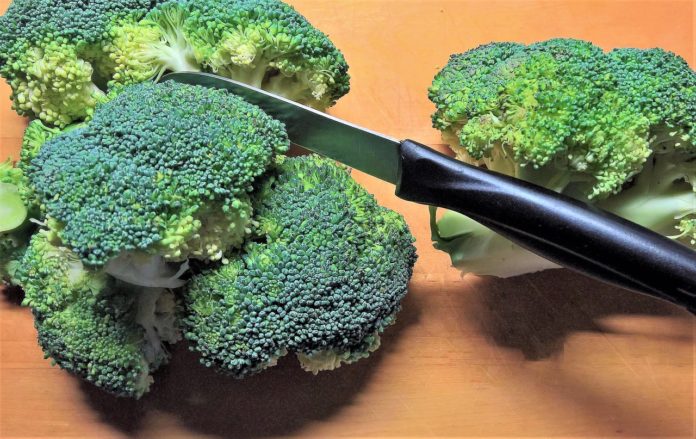A natural compound found in broccoli has been found to stimulate potent tumor suppressor gene offering potential novel approach to cancer prevention
Broccoli and other cruciferous vegetables – the family of plants that also includes cauliflower, cabbage, collard greens, Brussels sprouts and kale have long been associated with anticancer properties. They contain a molecule that inactivates a gene known to play a role in a variety of common human cancers.
In a new paper published in Science, researchers demonstrated that targeting the gene, known as WWP1, with the ingredient found in broccoli, suppressed tumor growth in cancer-prone lab animals.
“We found a new important player that drives a pathway critical to the development of cancer, an enzyme that can be inhibited with a natural compound found in broccoli and other cruciferous vegetables,” said Pier Paolo Pandolfi, MD, PhD, Director of the Cancer Center and Cancer Research Institute at Beth Israel Deaconess Medical Center. “This pathway emerges not only as a regulator for tumor growth control, but also as an Achilles’ heel we can target with therapeutic options.”
Researchers however, found that one needs to eat nearly 6 pounds of uncooked Brussels sprouts a day to reap their potential anti-cancer benefit
Tumor cells exhibit lower levels of a potent tumor suppressive gene, called PTEN, raising the question whether restoring PTEN activity to normal levels in the cancer setting can unleash the gene’s tumor suppressive activity.
Scientists carried out a series of experiments in cancer prone mice and human cells and found that a gene called WWP1 – which is also known to play a role in the development of cancer – produces an enzyme that inhibits PTEN’s tumor suppressive activity. The research team’s chemists recognized that a small molecule – formally named indole-3-carbinol (I3C), an ingredient in broccoli and its relatives – could be the key to quelling the cancer causing effects of WWP1.
When Pandolfi and colleagues tested this idea by administering I3C to cancer prone lab animals, they found that the naturally occurring ingredient in broccoli inactivated WWP1, releasing the brakes on the PTEN’s tumor suppressive power.
Researchers however, found that one needs to eat nearly 6 pounds of uncooked Brussels sprouts a day to reap their potential anti-cancer benefit. That’s why the team plans to further study the function of WWP1 with the ultimate goal of developing more potent WWP1 inhibitors.
“Either genetic or pharmacological inactivation of WWP1 with either CRISPR technology or I3C could restore PTEN function and further unleash its tumor suppressive activity,” said Pandolfi. “These findings pave the way toward a long-sought tumor suppressor reactivation approach to cancer treatment.”


